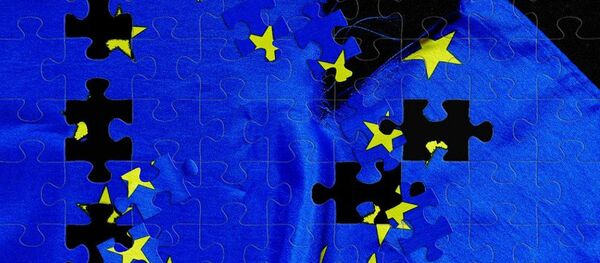Mencinger said that he is no fan of the EU, but he thought nevertheless that the British would err on the side of safety, and vote to stay in the union.
"I consider myself a Eurosceptic, but all I knew was that the result of the referendum in the UK would be close. I thought that the British would decide to stay in the EU, out of fear of the unknown."
He said the controversial decision to leave was nevertheless the right one to make because the European project has the same weaknesses as the former Yugoslavia, which fell apart in the early 1990s.
Mencinger pointed out that before the June 23 referendum the UK had already received some exceptions to its status in the Union, which only highlighted the EU's fundamental problems.
"We had the same situation 25 years ago in Yugoslavia, when Slovenians asked for something similar."
Before the EU referendum the UK, which is not a member of the Eurozone, had several special conditions to its EU membership.
These include a rebate to its membership fee (negotiated by Margaret Thatcher in 1984), exemptions from the EU-wide welfare system for migrant workers, and an exemption from the requirement in EU treaties for "ever-closer union" between EU countries, negotiated by David Cameron prior to the referendum in February.
Similar to the UK, Slovenia was one of the more economically developed members of the Yugoslav federation, and despite having access to a free market of almost 24 million people, voters there opted to leave Yugoslavia in a referendum in December 1990.
Mencinger said that giving the UK special conditions only serves to highlight the disparity between EU members, and the futility of the European Union project. Because of that, it is best for the UK to leave.
"The disintegration of the Union was to be expected, and not because of Euroscepticism. From the beginning, the EU was threatened by two things: its ideological construction of reality, and the imposition of uniform rules on very different states."
Mencinger believes that the economic consequences of Brexit are overblown, but that political consequences for UK voters, going against the wishes of elites in Brussels and the UK, could be more severe.
"The hysteria on financial markets will calm down quickly. The reaction of EU 'statesmen' is more worrying, because the British insulted them with their decision, so they need to be punished."
"Europe has to change to survive. If it goes in the direction of federalization, therefore monetary, fiscal and banking union, then that means the redistribution of GDP to the poorest," he said.
The former politician said that his euroscepticism is grounded in his criticism of the EU's institutions.
"I am not a critic of the EU, but I am a critic of the strategies and policies of the European Commission, therefore, the government of the EU. Now I think its policies are catastrophic, although it has started to slacken on the austerity, which has deepened crisis in an economy based on consumption."
The strategy aimed to make Europe "the most competitive and dynamic knowledge-based economy in the world."
"In my opinion, the most dangerous thing was the Lisbon strategy, which created a 'society of knowledge,' which sounds good but it implies moving production to China, and consequently the destruction of European industry and an increase in unemployment to once unimaginable levels."
On Tuesday, Mencinger also said that the negative effects of EU membership on Slovenia are slowly becoming apparent to people there, and that it has not offered a better future than the Yugoslavia they fought to leave.
"In Slovenia, it is gradually becoming understood that in Yugoslavia we were a sovereign republic, but now we are a forgotten and humiliated province, which only listens to what is dictated in Brussels."







